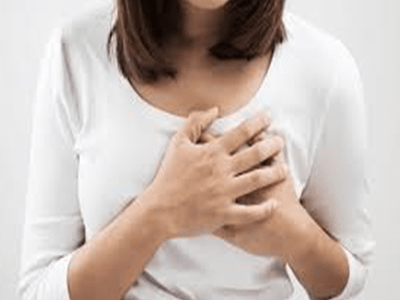Mastitis is an inflammation of breast tissue that sometimes involves with an infection.
Mastitis most commonly affects women who are breast-feeding (lactation mastitis). But mastitis can occur in women who aren't breast-feeding and in men also.
Signs and symptoms
- Breast tenderness or warmth to the touch
- Breast swelling
- Thickening of breast tissue, or a breast lump
- Pain or a burning sensation continuously or while breast-feeding
- Skin redness, often in a wedge-shaped pattern
- Generally feeling ill
- Fever
Causes
Milk that is trapped in the breast is the main cause of mastitis. Other causes include:
- A blocked milk duct. If a breast doesn't completely empty at feedings, one of your milk ducts can become clogged. The blockage causes milk to back up, leading to breast infection.
- Bacteria entering your breast. Bacteria from your skin's surface and baby's mouth can enter the milk ducts through a crack in the skin of your nipple or through a milk duct opening. Stagnant milk in a breast that isn't emptied provides a breeding ground for the bacteria.
Risk factors
Risk factors for mastitis include:
- Previous bout of mastitis while breast-feeding
- Sore or cracked nipples — although mastitis can develop without broken skin
- Wearing a tight fitting bra or putting pressure on your breast when using a seat belt or carrying a heavy bag, which may restrict milk flow
- Improper nursing technique
- Becoming overly tired or stressed
- Poor nutrition
- Smoking

